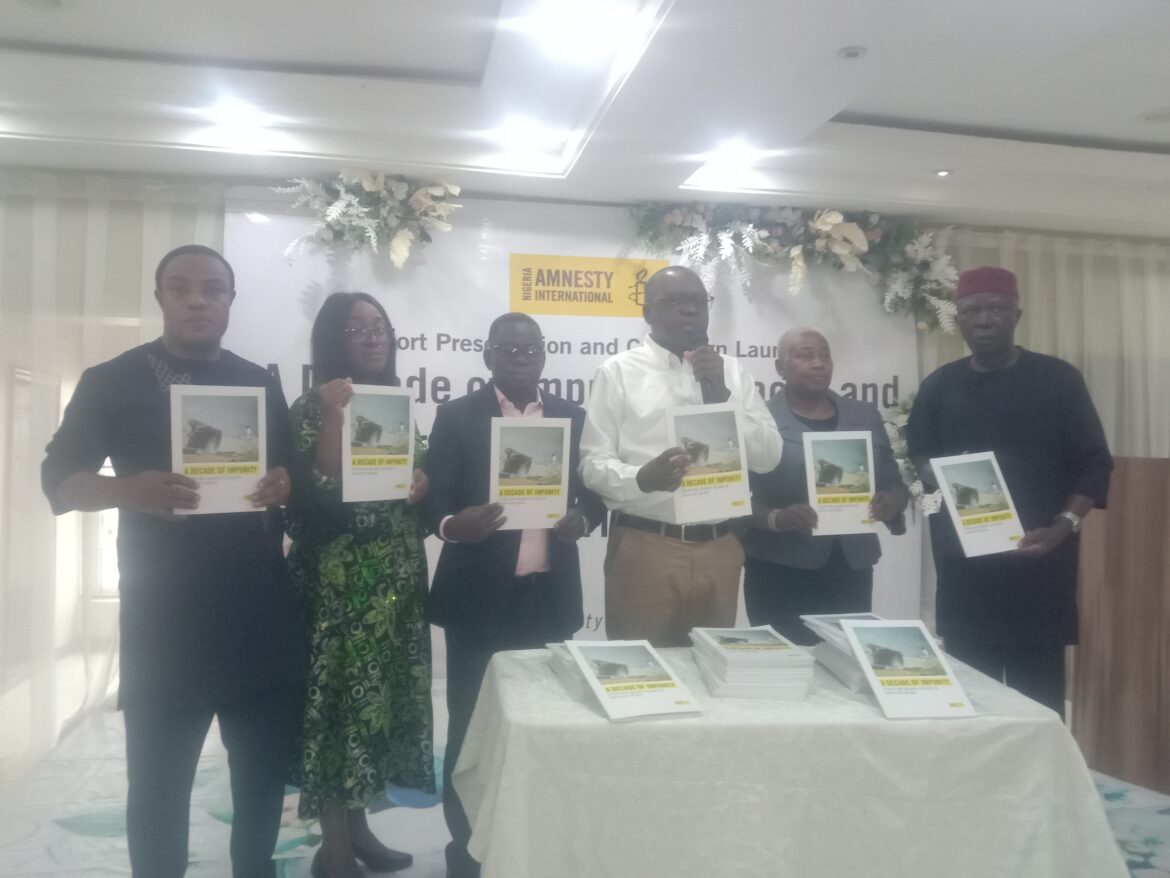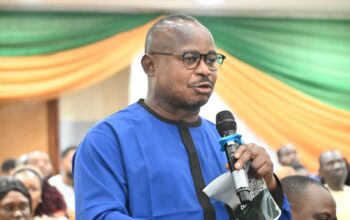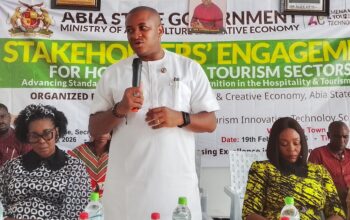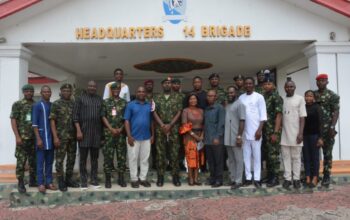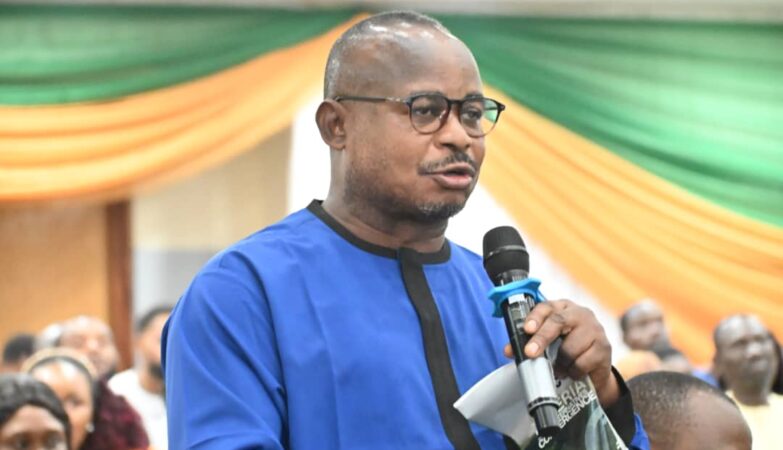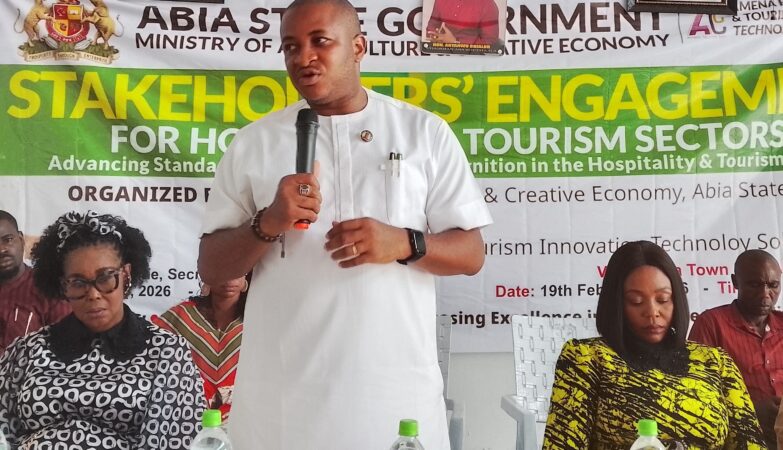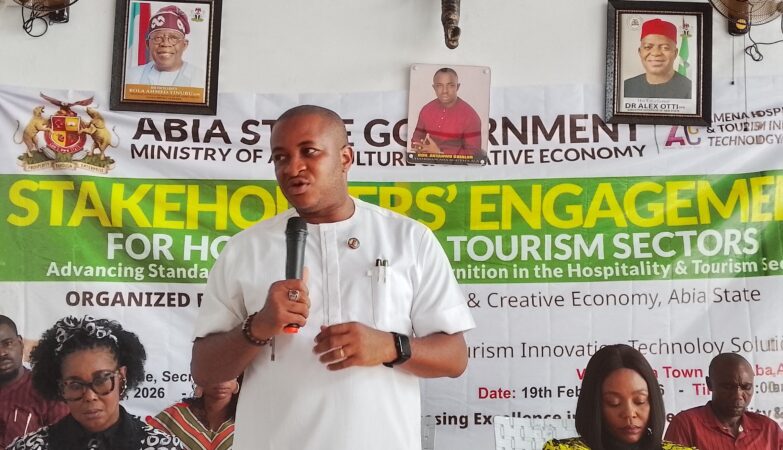Amnesty International has issued a damning indictment of the Nigerian authorities’ failure to address the escalating security crisis in the country’s South-East, accusing them of allowing a “decade of impunity” for widespread killings and human rights abuses by both state and non-state actors.
The accusation was delivered by Isa Sanusi, Director of Amnesty International Nigeria on Tuesday, during the launch of a new report titled “A decade of impunity: Attacks and Unlawful killings in South East Nigeria” in Enugu.
According to the report, the government’s persistent failure to act since August 2015 has created a “free-for-all” environment where at least 1,844 people have been killed between January 2021 and June 2023 alone.
“The Nigerian authorities’ brutal clampdown on pro-Biafra protests from August 2015 plunged the South-East region into an endless cycle of bloodshed,” said Sanusi. “This has created a climate of fear and left many communities vulnerable. Assassinations of prominent personalities and attacks on highways, security personnel and facilities are chilling reminders of the region’s insecurity.”
The report, based on interviews with 100 people and research missions across the region, details atrocities committed by a complex web of actors, including:
· “Unknown Gunmen”: Masked assailants who have killed hundreds in raids on communities, police stations, and public gatherings. Victims described being extorted and having their homes burned if they resisted.
· IPOB/ESN: While Nigerian authorities often blame the Indigenous People of Biafra (IPOB) and its Eastern Security Network (ESN) for attacks, the report highlights the group’s enforcement of a sit-at-home order as a major source of human rights violations. This order has led to people being beaten or killed for non-compliance, the closure of schools and markets, and severe economic disruption.
· State-Backed Forces: The report reveals that the paramilitary group Ebube Agu, established by South-East governors, has been used to “harass and intimidate” opponents and is accused of arbitrary arrests, torture, extrajudicial executions, and enforced disappearances.
· Nigerian Military and Police: Security forces are accused of committing unlawful killings, arbitrary detention, torture, and destruction of property during their operations in the region.
The insecurity has profoundly disrupted daily life, with many people unable to travel to their hometowns for years. Traditional ceremonies are now often held outside the region due to safety fears. In some communities, like Agwa and Wombe in Imo state, gunmen have sacked traditional rulers and taken total control, creating “ungoverned spaces.”
Despite the scale of the violence, justice for victims remains elusive.
“No one knows exactly the number of people killed in the southeast since August 2015. Many people have been declared missing or forcibly disappeared,” Sanusi stated. “Impunity for these human rights crimes continues to have a chilling effect on the enjoyment of other human rights.”
Amnesty International concluded with a direct call to action, urging the Nigerian government to “uphold their constitutional and international human rights obligations” by carrying out “prompt, thorough, independent, impartial, transparent and effective investigations” into all allegations of violations.
Amnesty International has issued a damning indictment of the Nigerian authorities’ failure to address the escalating security crisis in the country’s South-East, accusing them of allowing a “decade of impunity” for widespread killings and human rights abuses by both state and non-state actors.
The accusation was delivered by Isa Sanusi, Director of Amnesty International Nigeria, during the launch of a new report titled “A decade of impunity: Attacks and Unlawful killings in South East Nigeria” in Enugu.
According to the report, the government’s persistent failure to act since August 2015 has created a “free-for-all” environment where at least 1,844 people have been killed between January 2021 and June 2023 alone.
The report, based on interviews with 100 people and research missions across the region, details atrocities committed by a complex web of actors, including:
“Unknown Gunmen”: Masked assailants who have killed hundreds in raids on communities, police stations, and public gatherings. Victims described being extorted and having their homes burned if they resisted.
Isa revealed that the south east Governors, police, Army and DSS did not respond to their letters to react before the report was published.
In her welcome address, a board member of amnesty International Nigeria, Miss Ier Jonathan-Ichaver called for collective efforts to end abduction, killings and force disappearance of people in the south east.
She said that amnesty International is launching on the back of the report a Global campaign to draw the attention of the World to these killings and to drive action to an end to these violations.
Jonathan-Ichaver urged civil society organisations, the media to draw the attention of their families, associations and the diaspora to the report.
Some the victims including Dominic Okoli, the Palace Secretary of Lilu community in Anambra State, recounted how his community was repeatedly attacked. He revealed that between 2020 and 2025, several people were killed including communitty heads and many homes were destroyed and looted .
Nduka Ozo from Agwa community in Imo State narrated the abduction and killing of his brother, a retired police officer. He expressed frustration with the response from security forces, stating that when his brother was abducted, the police and local vigilantes who were contacted denied having access to a vehicle or fuel to respond. He added that property worth an estimated one billion Naira was destroyed in his community .
During the panel discussions, Professor Felix Asogwa from Enugu State University noted that the report brought him a sense of relief and that it was a credible account of the situation. He called on political leaders to prioritize security over politics .
According to another panelists, Mr Okechukwu Nwanguma, said the report from amnesty is timely, accurate and detailed account.
He described the report as a call to conscience, saying that without it, the insecurity may persist.
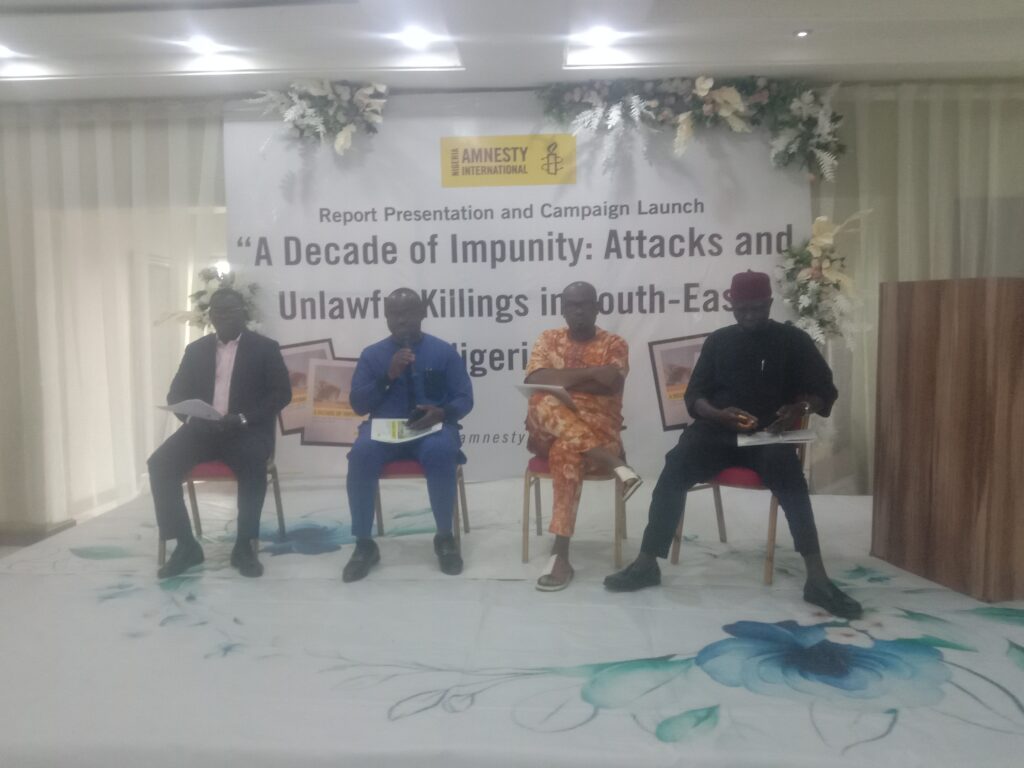
Also, Comrade Nelson Nwafor condemned the “conspiracy of silence” by South-East Governors and security agencies. He highlighted the danger of their failure to respond to Amnesty International’s letters and encouraged all stakeholders to work together to address the challenges.
Comrade Nwafor stated that the security agencies should embrace the recommendations in the report to ensure peace .

